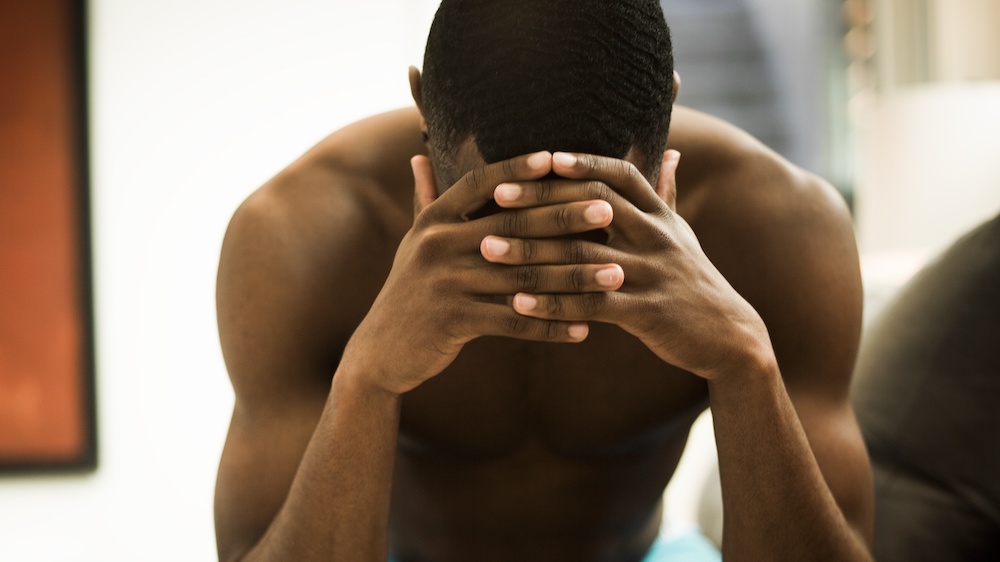If you’re interested in sharing your opinion on any cultural, political or personal topic, create an account here and check out our how-to post to learn more.
____
As an aspiring mental health professional, I have worked with a number of different demographics. My willingness to keep serving in this field has fostered a lot of patience and awareness about myself and other people. The work that I do now is with Black male teens who are between the ages of 15 to 17. I work in a very male-dominated space at a social service agency in Chicago, and I bear witness to the decline in vulnerability and healing amongst the Black teens I serve, as well as the Black men I work with.
We don't hear about many men discussing their experiences with therapy openly. As a matter of fact, we barely hear about Black men being willing and open to go to therapy. Vulnerability is not a thing amongst our brothers. Resistance is a very common feeling in Black men that results in creating overwhelming emotional barriers toward healing and tracking mental health experiences. All in all, Black men are carrying around a lot of weight that isn't being addressed, and it’s starting to show up more in their relationships and friendships, as well as social and work settings.
Many Black men (arguably most) struggle with the idea of being openly expressive about their emotional feelings, resulting in a sense of sadness that leads to depression, anger that leads to outrage and resentment that leads to abuse. For these men, they respond to their own resistance and lack of vulnerability by "shutting down" in relationships and friendships, which further harms themselves and, sometimes, the people around them.
If a Black man grew up sensitive and more willing to openly express his feelings, emotions and struggles regarding his mental health, he is faced with a unique challenge of having to defend his manhood. Men who are more sensitive, emotionally aware and driven are viewed as weak, too soft and sometimes even gay.
Emotional Barriers To Seeking Help Are Becoming Harmful
Unrealistic beliefs about Black men and their mental are starting to drive the chances of them seeking the help they need. Black men are told and thought to be strong. Being strong to them often looks like dismissing their feelings by continuing to stay busy, diving into work and self-medicating with substances. Black men are falling into the habit of silencing themselves more and more, and it is a circular problem still at work.
As a Black woman, I’ve struggled in tackling my own mental health, but as a mental health professional serving this population, I’ve witnessed clients struggle significantly with releasing anxiety, societal norms and resistance toward seeking help.
Historical Barriers Are Still At Play
In addition to emotional barriers creating gaps between Black men and their willingness to address their mental health, historical barriers are still at the surface as well. We can't have a conversation about Black men and their mental health without discussing the racial and medical disadvantages our people had in the past. Historically, Black bodies were used in harmful experiments that resulted in death and sickness. As a result, there is a significant amount of distrust the Black community has for medical and mental health providers, especially among Black men.
I said all of that to say why I am here. I have not given up on the potential towards healing I see in Black men. When I witness tragedy, when I witness anger and when I witness sadness amongst the teens I serve, I witness a cry for help. I witness that need for support, love and security. We can't forget that our men have been hurt and are still hurting. Encouraging and prompting goes a long way.
As Black women and as a Black mental health professional, I see myself working more towards doing some unmasking. I want men to feel comfortable and safe enough to reveal themselves to me, which is why I’ve made the choice to stay within this field and serve this population.
Needing love is an understatement. Black men need to feel heard and witness that they are being seen, not forgotten and blamed for their longstanding resistance toward healing work. If it is OK not to be OK for Black women, it should be OK to not be OK for Black men, too.
